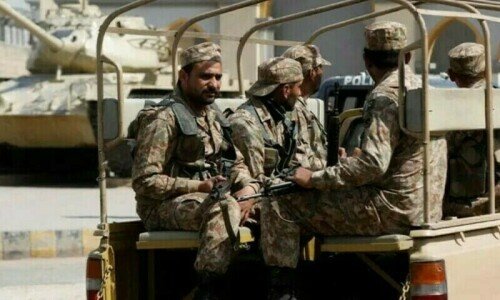Pakistan Security Forces Kill 47 Terrorists in Balochistan: Major Blow to Indian-Backed Militants

Pakistan Security Forces Kill 47 Terrorists in Balochistan in Major Anti-Infiltration Operation
Islamabad – In a decisive counterterrorism victory, Pakistan security forces have killed 47 terrorists in a massive anti-infiltration operation along the Pakistan-Afghanistan border in Balochistan’s Zhob district, the Inter-Services Public Relations (ISPR) confirmed on Saturday.
The multi-day operation, which began on the night of August 7 and continued into August 9, targeted militants identified as members of the banned Tehreek-i-Taliban Pakistan (TTP) referred to by the state as Fitna al-Hindustan and Fitna al-Khawarij due to alleged Indian support for their destabilizing activities in Pakistan.1
Operation Details
The ISPR revealed that the most recent action took place on the night of August 8-9, 2025, when security forces conducted a “deliberate sanitisation operation” in the Sambaza area near the Pakistan-Afghanistan border.
During the mission, 14 Indian-sponsored militants were neutralized, with a significant cache of weapons, ammunition, and explosives recovered. This followed earlier engagements on August 7-8 in the same region, during which 33 militants were killed.
“This raises the total number of terrorists eliminated in the two-day anti-infiltration effort to 47,” the military’s media wing confirmed.
Significance of the Victory
Military officials have described the success as a major blow to Indian-backed terrorism in Balochistan, a province that has suffered repeated attacks over the past two decades.
“The security forces remain committed to securing the nation’s frontiers and thwarting attempts at sabotaging peace, stability, and progress of Pakistan,” the ISPR’s statement asserted.
The operation is part of Pakistan’s intensified border security strategy, aimed at preventing cross-border infiltration by militants using Afghan soil as a staging ground.
Political and Public Response
Interior Minister Mohsin Naqvi praised the military’s swift action, calling it a “textbook example of operational excellence” and a direct counter to what he described as “Indian-sponsored chaos.”
In a statement posted on X (formerly Twitter), Naqvi said:
“Security forces, through timely operations, sent 47 terrorists of Fitna al-Hindustan to hell in two days. By taking swift action, they foiled a sinister conspiracy to sabotage peace in Balochistan.”
He added that the nation stands united behind its armed forces, lauding the soldiers’ professionalism and courage in the face of persistent threats.
Understanding ‘Fitna al-Hindustan’
The term Fitna al-Hindustan is a recent designation introduced by the Pakistani government in May 2025 to refer to terrorist groups in Balochistan allegedly supported by India. Officials say the naming is part of an effort to frame terrorism as a deliberate foreign destabilization campaign, aimed at rallying domestic and international support against such activities.
This label includes the TTP and other banned outfits blamed for attacks across Balochistan and Khyber Pakhtunkhwa (KP).
Rising Terrorism Threat
Pakistan has experienced a surge in terrorist incidents since the TTP ended its ceasefire with the government in November 2022.
According to the Global Terrorism Index 2025, Pakistan ranks second worldwide for terrorism impact, with a 45% increase in terror-related deaths last year, bringing the toll to 1,081 fatalities.
Balochistan and KP remain the epicenters of such violence, with militants exploiting rugged terrain, porous borders, and limited surveillance infrastructure to stage attacks.
Recent Operations in Balochistan
The Sambaza mission is the latest in a series of successful counterterrorism operations in the province:
-
July 2025: Three terrorists killed and two security personnel, including an army major, martyred during an intelligence-based raid in Mastung district.
-
July 2025: Eight militants eliminated in two separate military engagements in Kalat district.
-
August 2025: Multiple anti-terror sweeps along the border aimed at halting infiltration before Pakistan’s upcoming national events and cricket tournaments.
Security analysts say these operations are designed not just to neutralize active threats but also to send a strong deterrence message to hostile networks.
Weapons and Evidence Recovered
During the Sambaza operation, security forces reportedly recovered:
-
Assault rifles and light machine guns
-
Improvised explosive devices
-
Improvised explosive devices (IEDs) and grenades
-
Communication equipment allegedly linked to cross-border handlers
Military experts believe the seizures could provide actionable intelligence to disrupt further infiltration attempts and dismantle sleeper cells operating inside Pakistan.
Regional Implications
The killings are likely to heighten tensions between Pakistan and Afghanistan, as Islamabad continues to demand that Kabul prevent militants from using Afghan soil as a sanctuary.
Relations with India are also expected to remain strained, given Pakistan’s direct accusation that the militants were Indian-backed proxies tasked with destabilizing Balochistan.
A Call for Vigilance
While the success in Sambaza has been widely celebrated, analysts caution that Pakistan’s security challenges are far from over. The TTP and other extremist factions have shown resilience, often regrouping and attempting fresh infiltrations after suffering losses.
Counterterrorism specialists emphasize the need for:
-
Sustained border monitoring
-
Improved coordination between civil and military agencies
-
Continued investment in intelligence gathering
-
Socioeconomic development in militancy-prone areas to address root causes
Conclusion
The 47 militants killed in Balochistan mark a significant tactical win for Pakistan’s armed forces, but the broader fight against terrorism remains ongoing.
As long as foreign-backed groups seek to exploit Pakistan’s vulnerabilities, the country’s security forces will have to maintain relentless pressure on these networks not just through military means, but also through political, diplomatic, and economic measures.
For now, though, the nation celebrates this victory as a powerful message to those who aim to undermine its peace and stability.




